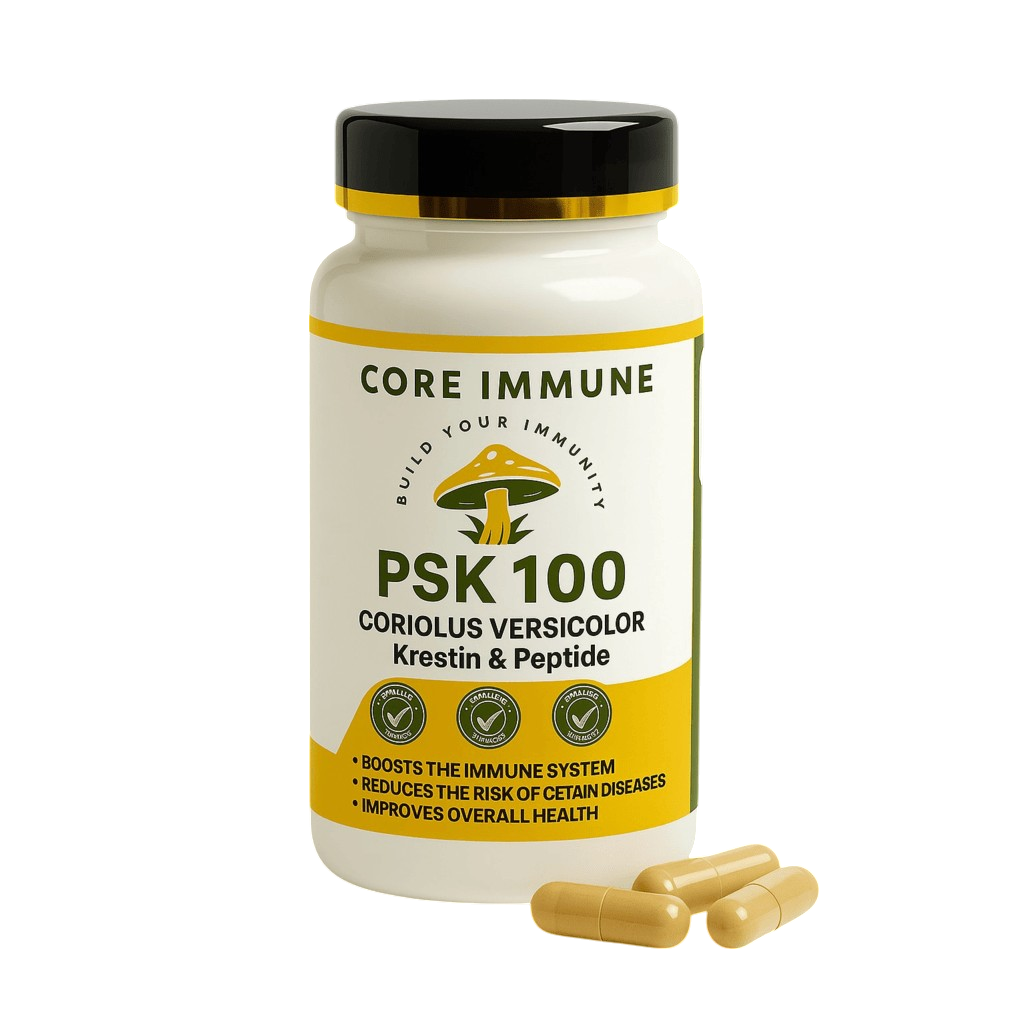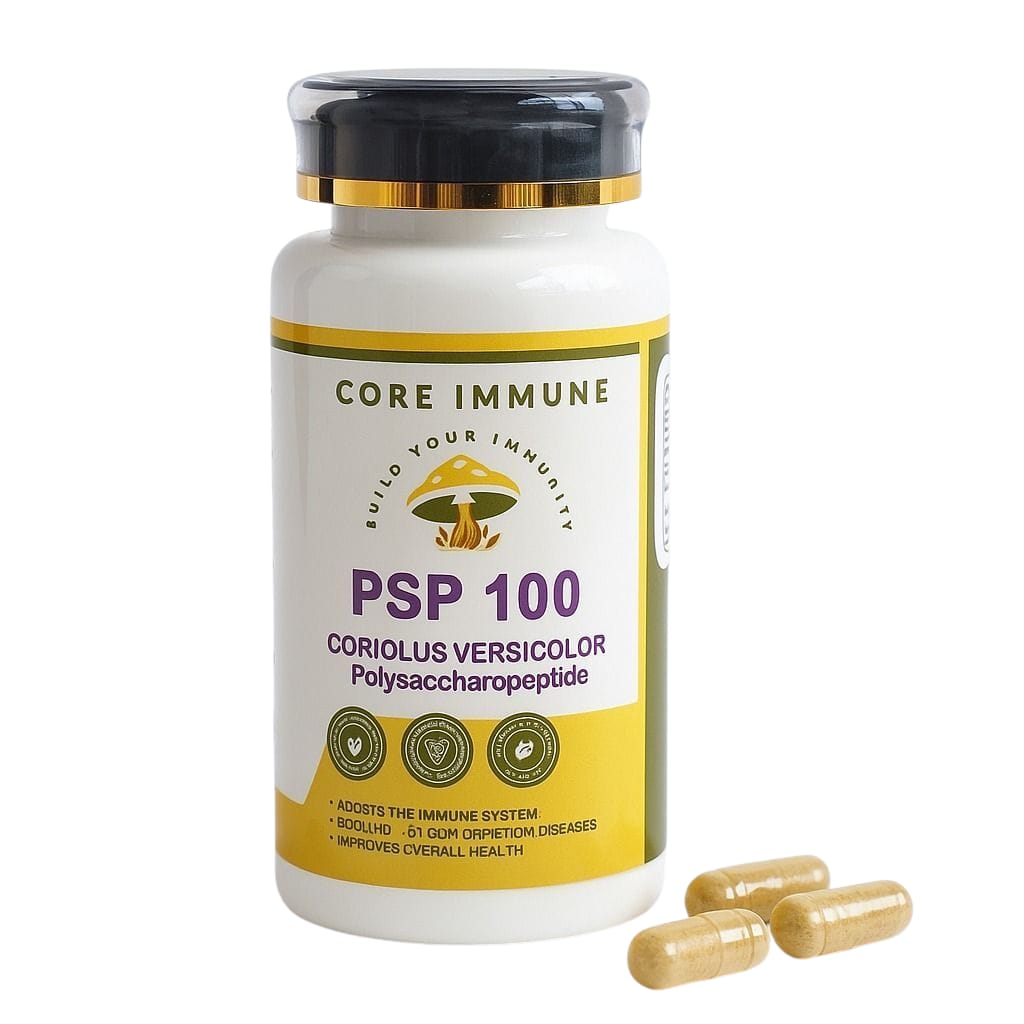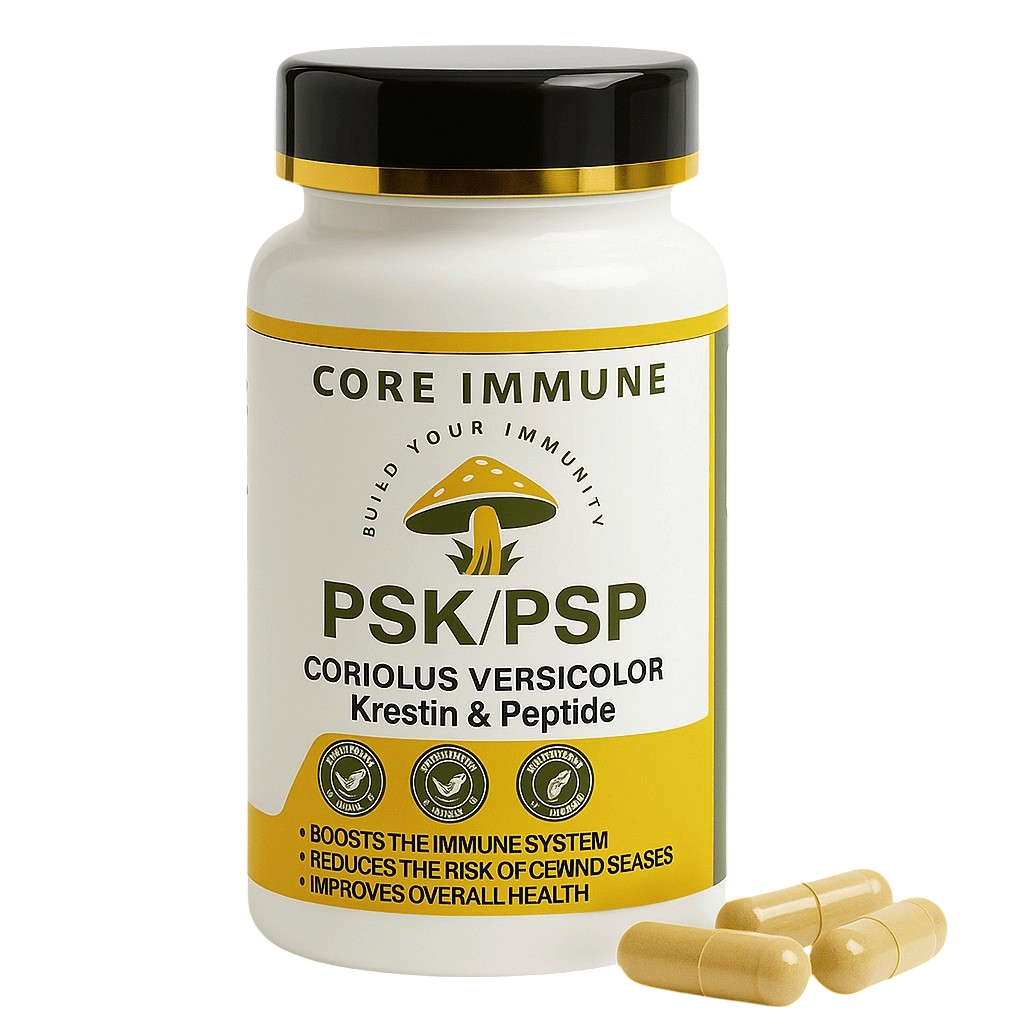Polysaccharide Krestin (PSK) is a drug approved for medical use in Japan, not a dietary supplement. (However, in the Rest of World it is still considered a dietary supplement).
It is extracted from the Coriolus Versicolor aka Turkey Tail mushroom (Trametes versicolor) and has been used as an adjuvant therapy for cancer treatment, primarily in Japan and China.
Key Points
PSK is a protein-bound polysaccharide extracted from the mycelia (not fruiting body) of the Turkey Tail mushroom (Trametes versicolor).
It was approved as a prescription drug for cancer treatment in Japan in 1977 and has been used there for over 45 years as an adjuvant to chemotherapy.
PSK is considered a pharmaceutical-grade medicine in Japan, not a dietary supplement.
Clinical trials have studied the use of PSK alongside chemotherapy for various cancers like gastric, colorectal, lung, and others, showing benefits like prolonged survival and remission periods.
PSK is thought to have immunomodulatory effects, enhancing the body's anti-tumour immune responses when used with chemotherapy. So in summary, polysaccharide Krestin (PSK) has regulatory approval and is used as a prescription drug, primarily in Japan, rather than being marketed as a dietary supplement.
Citations:[1] Polysaccharide-Peptide from Trametes versicolor: The Potential ... https://www.ncbi.nlm.nih.gov/pmc/articles/PMC9687461/[2] Polysaccharide Krestin is a novel TLR2 agonist that mediates ... - NCBI https://www.ncbi.nlm.nih.gov/pmc/articles/PMC3017241/[3] Biological mechanism and clinical effect of protein-bound ... https://link.springer.com/article/10.1007/s00595-011-0075-7[4] TURKEY TAIL MUSHROOM - Uses, Side Effects, and More - WebMD https://www.webmd.com/.../ingredient.../turkey-tail-mushroom[5] Turkey Tail Uses, Benefits & Dosage - Drugs.com Herbal Database https://www.drugs.com/npp/turkey-tail.html At Core Immune Health we currently only sell PSK, PSP and high strength Lion's Mane products. Polysaccharide Krestin (PSK) is one of the most commonly used mushroom extracts. It was approved as a prescription drug for the treatment of cancer in Japan in 1977. By 1987, PSK accounted for more than 25% of total national expenditure for anticancer agents in Japan.
















